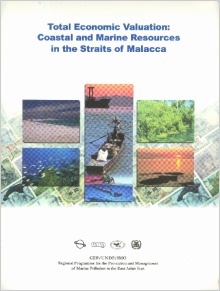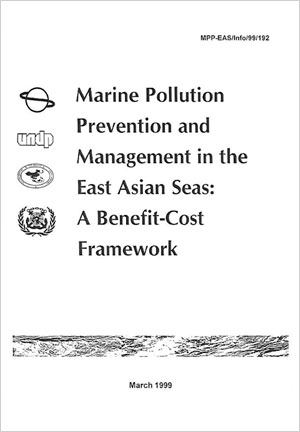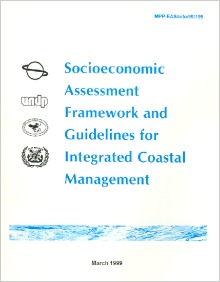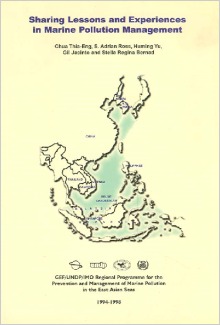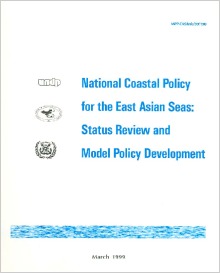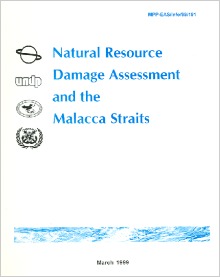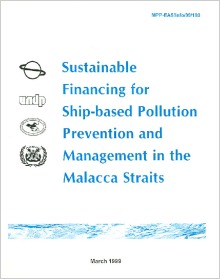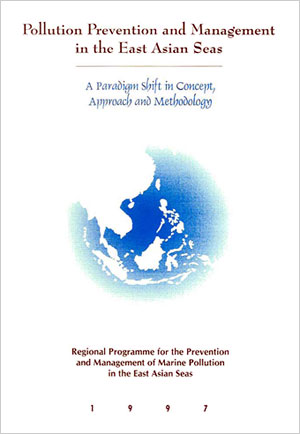
Breadcrumb
-
Total Economic Valuation: Coastal and Marine Resources in the Straits of Malacca
This report provides a framework for the economic valuation and initial estimates of the total economic value of coastal and marine resources in the Straits of Malacca. Often, resources are appreciated only in terms of the direct market values they provide. Because non-use values and ecosystem services are not fully quantified in markets, they are often given little weight in policy-making. The undervaluation of resources results in conflicting policies, such as conversion of resource areas to other uses, and overexploitation by people who are not well-informed of the consequent impacts. Valuation of natural resources and the environment necessitates the estimation of benefits and costs of using these natural assets.
-
Water Use Zoning for the Sustainable Development of Batangas Bay, Philippines
This study deals with the creation of a water use zonation scheme for Batangas Bay, an area rife with multi-layer claims and multi-use conflicts among its surrounding coastal municipalities. The proposed zonation scheme aims to address these issues and avert their possible escalation. The study includes ideas on how to improve the quality of existing land use plans with regard to the use of waterfront areas and also explores the innovative institutional arrangements for implementing the water use zonation scheme in its adherence to the principles of local autonomy and people empowerment.
-
Marine Pollution Prevention and Management in the East Asian Seas: A Benefit-Cost Framework
This document provides a benefit-cost framework for managing land- and sea-based pollution in the East Asian seas. Benefit-cost (and cost-effectiveness) analyses increasingly are being used to contribute to resource management decisions. In the past, benefits and costs were viewed narrowly; those occurring outside the market place tended to be overlooked. Ignoring the non-market environmental effects, however, implicitly and inappropriately assigns them the value of zero. The framework, guidelines and examples given in this document outline appropriate general concepts to account for benefits and costs, indicate steps to be taken, and how some of the concepts and methods have been or should be applied.
-
Socioeconomic Assessment Framework and Guidelines for Integrated Coastal Management
This publication provides a framework and guidelines for conducting socioeconomic impact assessments for integrated coastal management (ICM) programs. The framework and guidelines consist of (1) concepts and methods to contribute to a better understanding of the potential benefits and costs from ICM, and (2) indicators that might be used to help assess how well the ICM process is working. The concepts and methods described in this publication are drawn from the fields of environmental and natural resource economics and applied benefit-cost analysis and are intended to make information available that might better inform, and by that contribute to ICM efforts.
-
Sharing Lessons and Experiences in Marine Pollution Management
In 1993, the East Asian Seas nations launched a regional initiative aimed at addressing the social, environmental and economic consequences of the continuing trend of degradation of their regional seas. This publication shares the lessons learned from the initiatives of the Regional Programme on Marine Pollution Prevention and Management in the East Asian Seas. Lessons include information on creating sustainable marine pollution management programs that enhance the implementation of marine pollution-related international conventions in the East Asian Seas region and beyond.
-
National Coastal Policy for the East Asian Seas: Status Review and Model Policy Development
The papers contained in this publication discuss the issues and experiences relating to the management of coastal resources and the development of a national coastal policy and action plan for the countries in the East Asian seas region. While based on extensive research and field validation, these papers do not claim to be the final word on these matters, but are intended to provoke further discussion and thought on the issues discussed.
-
Natural Resource Damage Assessment and the Malacca Straits
This report focuses on economics and explores the feasibility of a Straits-wide approach for assessing natural resource damages in the Straits of Malacca. Emphasis is given to damages due to harm to publicly controlled natural resources, rather than to private losses, since the latter are relatively easy to assess compared to natural resource damages, and the incentive and legal means usually exist to pursue such claims.
-
Sustainable Financing for Ship-based Pollution Prevention and Management in the Malacca Straits
This report examines sustainable financing mechanisms for measures to prevent and manage ship-based, transboundary pollution in the Straits of Malacca. Ship-based pollution includes not only oil spills but also garbage, plastics, oil, grease, sludge and other wastes. The Straits of Malacca are among the world’s busiest waterways, operating conditions for vessels are very difficult and accidents are common. Further, many important ecosystems/natural resources in the Straits are vulnerable to pollution, such as mangroves, corals, fish and beaches, and resource-dependent activities such as fishing and coastal tourism and recreation.
-
Pollution Prevention and Management in the East Asian Seas: A Paradigm Shift in Concept, Approach and Methodology (1997 Annual Report)
The last two decades saw countries in the East Asian region taking action to reduce and avoid environmental threats. It is apparent however that existing national and regional efforts and still lacking. This report provides innovative frameworks that highlight alternative approaches to marine pollution management. The paradigms presented here are results of years of project experience and ranges from perception to new investments and partnerships in mitigating pollution. The 1997 report has been prepared under the theme "Prevention and Management of Marine Pollution in the East Asian Seas: A Paradigm Shift in Concept, Approach and Methodology". The paradigm shift outlined in this report touches both the abstract and the practical aspects of the Regional Programme, ranging from changes in perception, to transformation in institutional arrangements, to new investments and partnerships in monitoring, mitigating and avoiding pollution.
